[Shanghai Girl Eats] Bo Shanghai
Bo Shanghai | Dianping
Address: 6/F, Bund No. 5, 20 Guangdong Lu near Zhongshan Dong Yi Lu / 广东路20号外滩5号6楼
Date visited: 2016.08 for dinner
Price: Set menu RMB1,500 per person + 10% service charge (wine pairing additional RMB500)
Will return: Yes
<Please note this venue has closed>
3* Michelin chef Alvin Leung of Bo Innovation Hong Kong has landed in Shanghai with a completely new menu of distinctly Chinese dishes reinvented with western elements. Bo Shanghai is Chinese food delicately recreated though a journey of 10+ courses each representing a region of China. The set is RMB1,500 per person for a refreshing concept well done. Is it expensive? Totally — but I think there is a small audience for it. For the same price, would I eat this over omakase sushi? No, I wouldn’t choose anything over sushi.
The service is incredible with the staff able to describe every dish not only in Chinese but also in English and then some. The level of helpfulness they were actually made me ask if they were from Hong Kong or elsewhere. Overall, the food is good and worth trying because there are almost zero places that do this type of Chinese food but it is indeed very expensive to frequent.
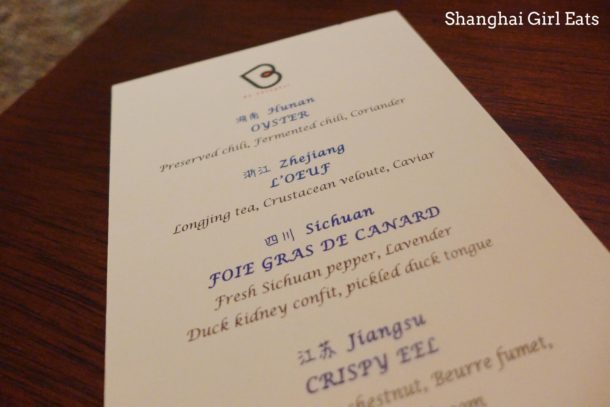
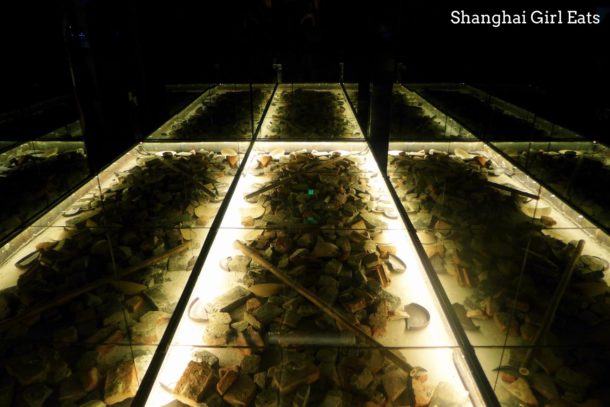
Bo is located in Bund No. 5 and hidden behind another concept Daimon (also new); you will have to find this glass rock path to enter Bo. Behind the hidden door, you will find a rustic space with an open kitchen, counter seats, tables, and private room.
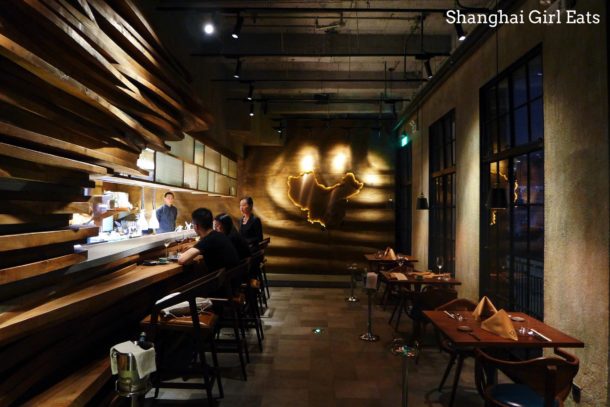
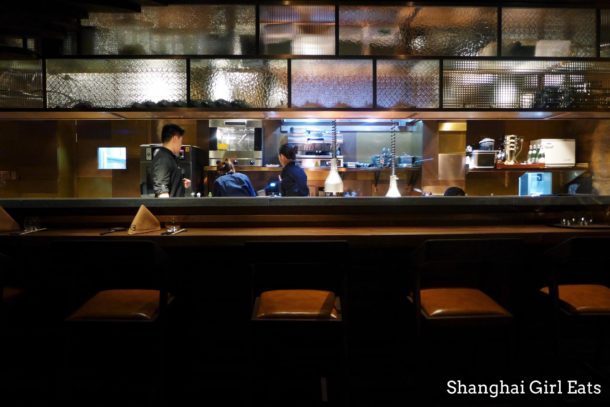
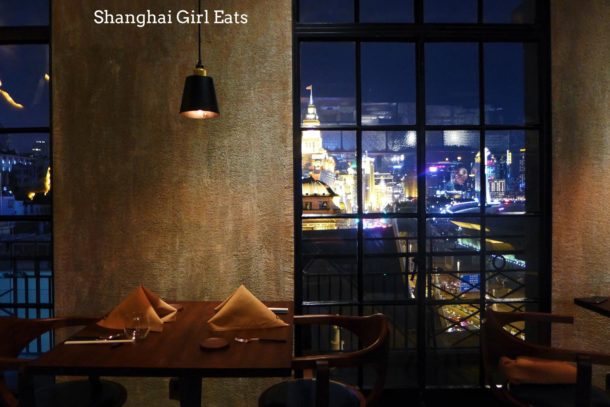
The private room has a view of the Bund and can be joined with the adjacent space into a larger private room.
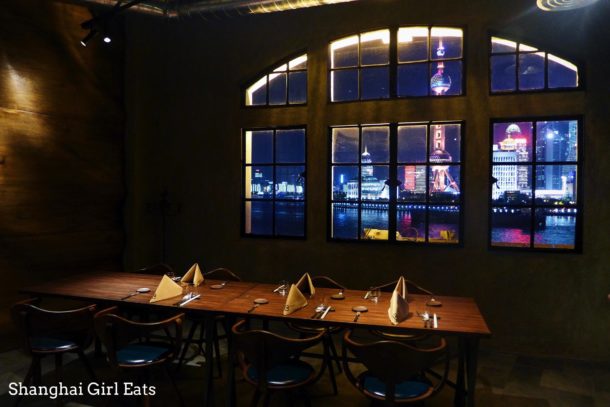
We started off with bite-size non-traditonal bread — buttery mantou and spring onion croissant — a reverse pairing of ingredients. The croissant baked with spring onion was so good.
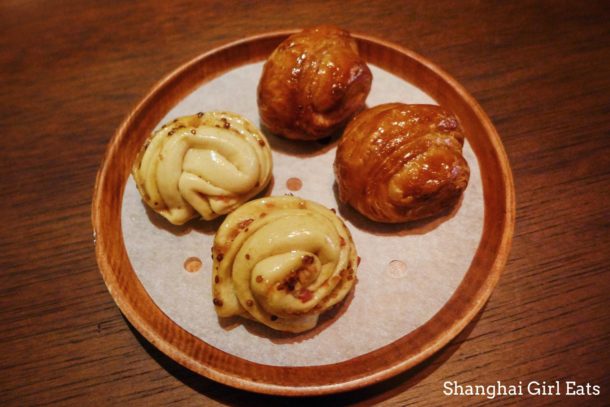
Amuse-bouche was a truffle kaofu (gluten) and deconstructed xiaolongbao (soup dumpling). The delicate pouch tasted exactly like soup from inside a xiaolongbao with vinegar and ginger but without the skin. The truffle kaofu tasted like french onion soup — I can’t even describe how they managed to achieve this.
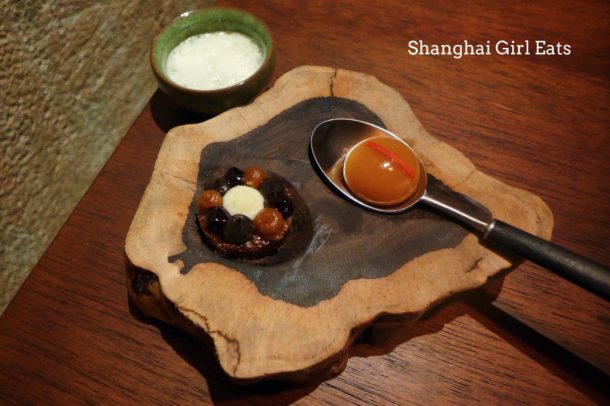
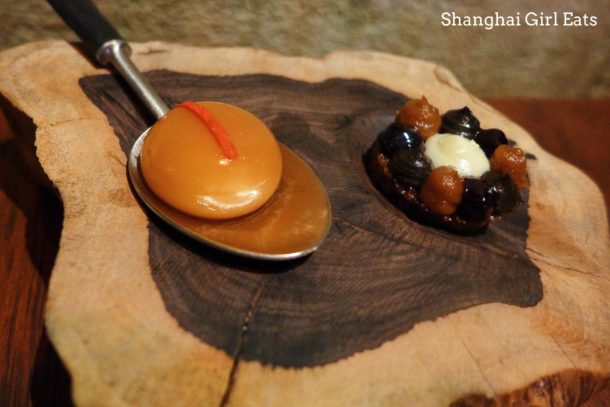
Hunan: oyster, preserved chili, fermented chili, coriander
The oyster came with double chili pepper flavors in the form of a green jelly and a red sauce.
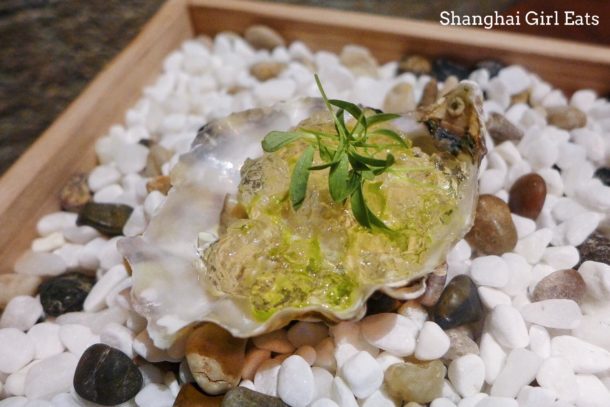
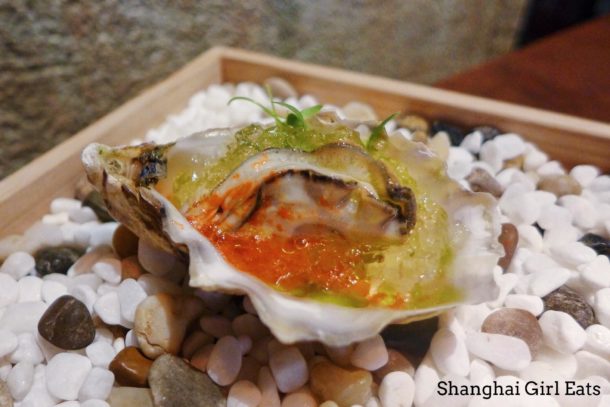
Zhejiang: l’oeuf, longjing tea, crustacean velvet, caviar
Onsen egg, caviar, raw sweet shrimp, and bamboo cubes in a tea broth poured at the table. Pop the egg and mix everything up. Excellent dish, especially with sweet shrimp (because I don’t like fully cooked shrimp).
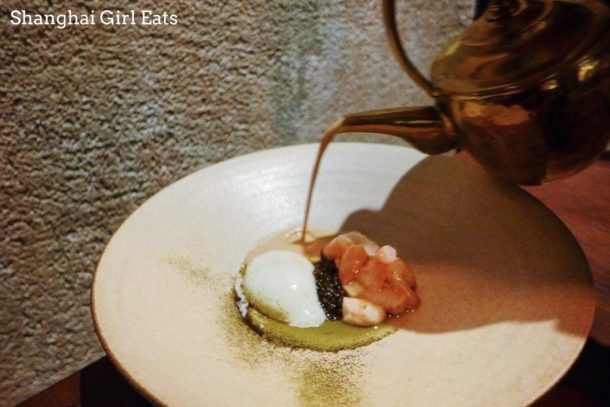
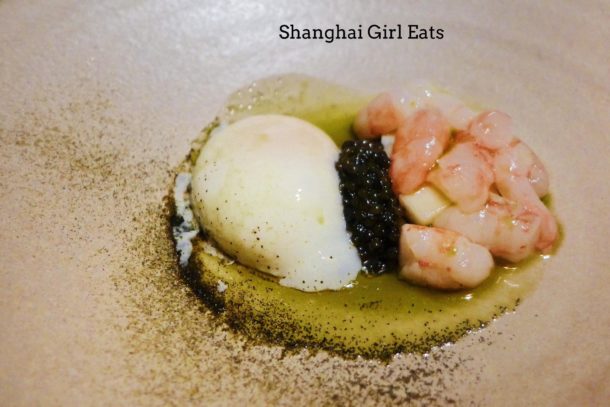
Sichuan: foie gras de canard, fresh Sichuan pepper, lavender, duck kidney confit, pickled duck tongue
The combination of liver, kidney, and tongue into one dish made so much sense together but I didn’t like the accompanying lavender jelly. The white powder is actually pepper and gave me a taste of spicy foie gras for the first time.
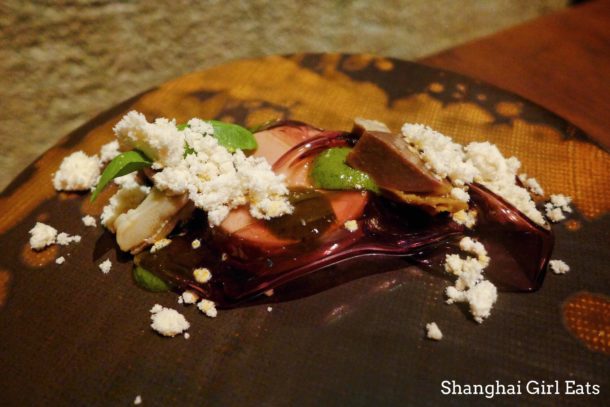
Jiangsu: crispy eel, barley, water chestnut, beurre fumet, termite mushroom
Fresh water eel is a Jiangsu specialty and this one was modified into tempura and accompanied by barley and ginger. Feels like a Japanese tempura has been dropped into a Chinese dish.
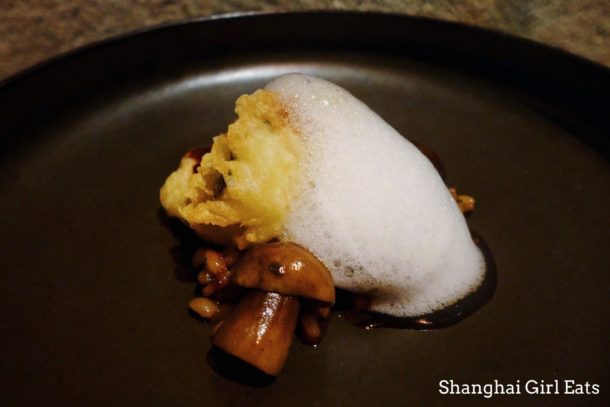
Anhui: cuisses de grenouille, Yunnan ham cream, mandarin peel, matsutake
Super tender deboned frog legs with the most umami-ful mushrooms.
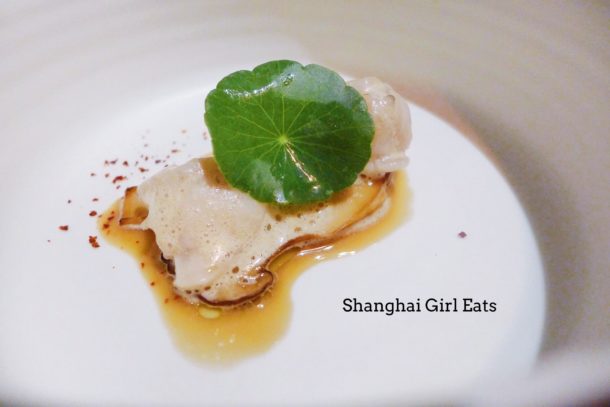
This course was originally supposed to be Shandong: sea cucumber, langoustine mousse line, sauce nantua, horseradish, Shandong millet but I don’t like sea cucumber so I asked the kitchen to substitute another dish in. Instead, we had mandarin fish with beancurd and bamboo in the shape of a bone marrow. Pretty good alternative.
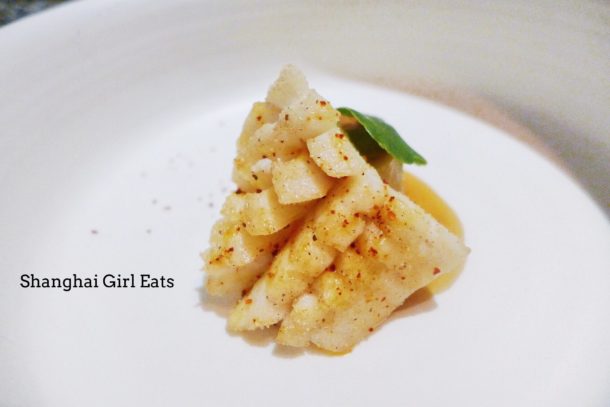
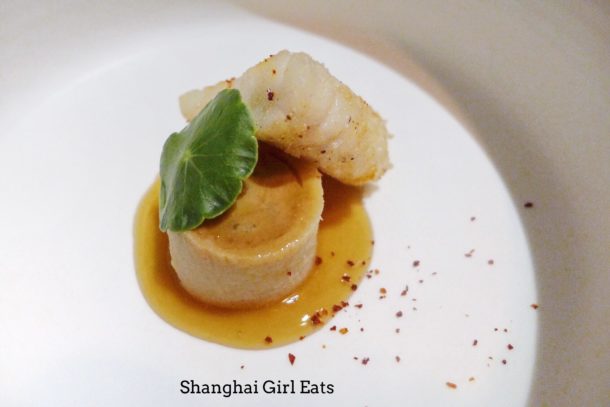
We had something of an intermission in the form of an iced dragon ball with bayberry, lemon grass, champagne as a palate cleanser.
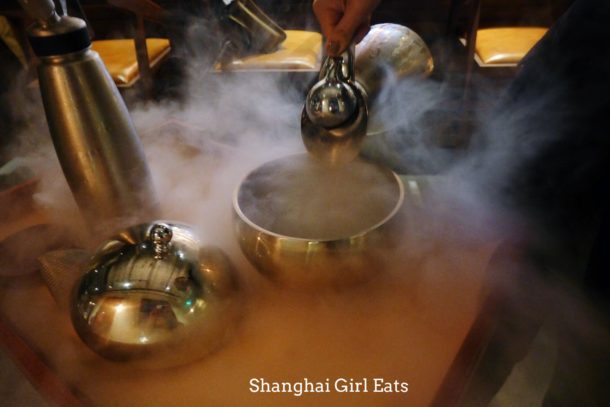
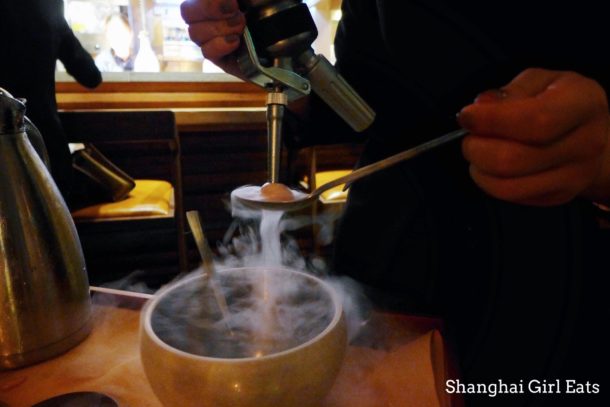
Fujian: wagyu, red rice wine, pearl onion, pave, lychee
The beef was a bit undercooked for my liking and ended up slightly chewy. It was accompanied by a red rice wine sauce and sweet lychee gel that contrasted with the tangy pearl onion well.
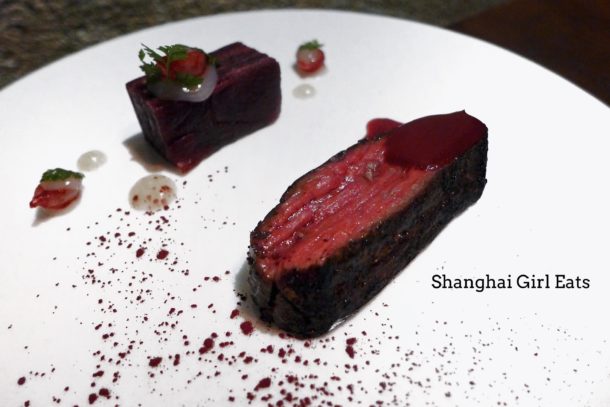
Guangdong: zongzi, black truffle, cepes, salted duck yolk, Sarrade ham
This is the epitome of Chinese food reinvented. If I had to describe this restaurant in a dish, this would be it. It’s like truffle rice rolled up into a zongzi. Kind of crazy and really good. This was my favorite dish.
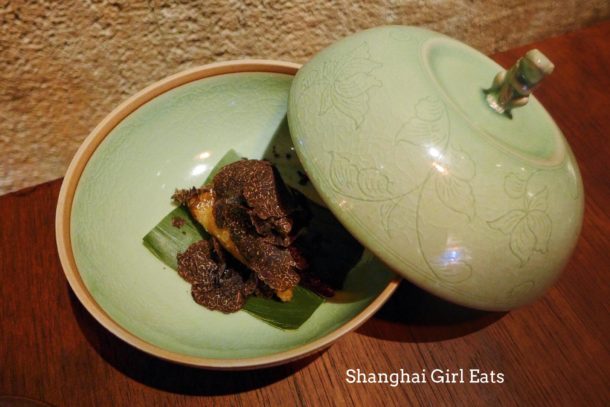
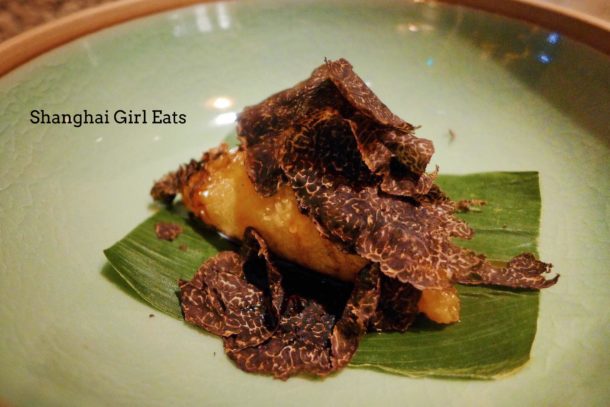
Hunan: panna cotta, orange blossom, almond
There were three elements to this dessert that were all very good: almond panna cotta, something orange-flavored that tasted in between a sorbet and ice cream, and almond flavored ice similar to Dipping Dots.
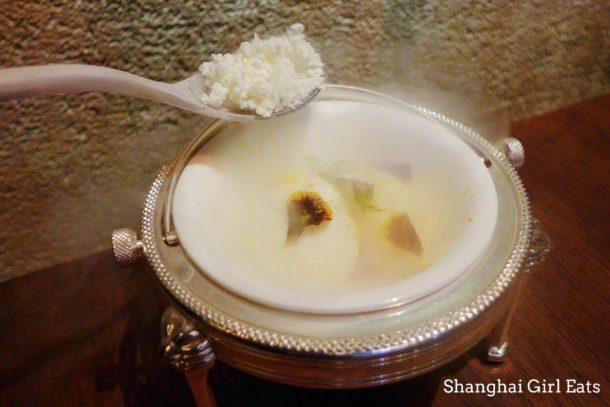
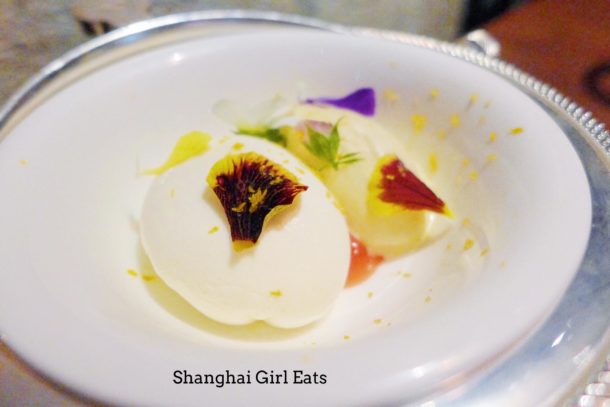
Opera cake, dark chocolate shui jing fang, hazelnut
I am usually not a fan of opera cakes but this was really good especially with a touch of hazelnut. The crazy continued as our server sprayed baijiu from a perfume bottle onto the cake.
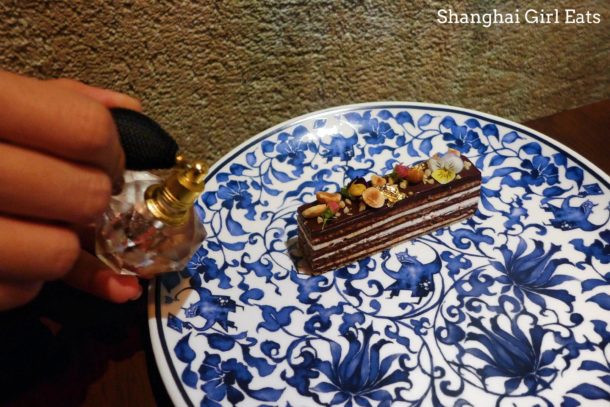
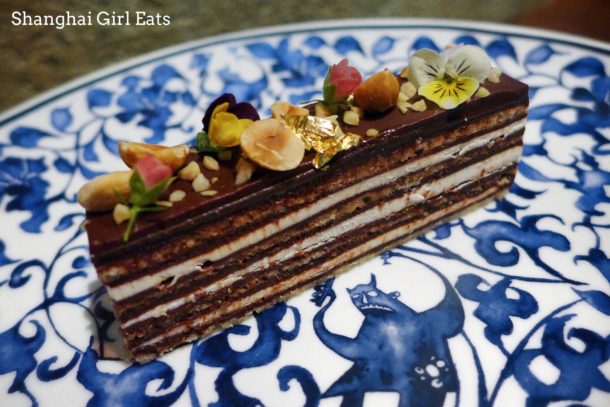
We ended with a trio of petite sweets: osmanthus tea madeleine, goat cheese & honey macaron, and red date cream puff. All three had very distinctly odd but good flavors that made sense when eaten consecutively.
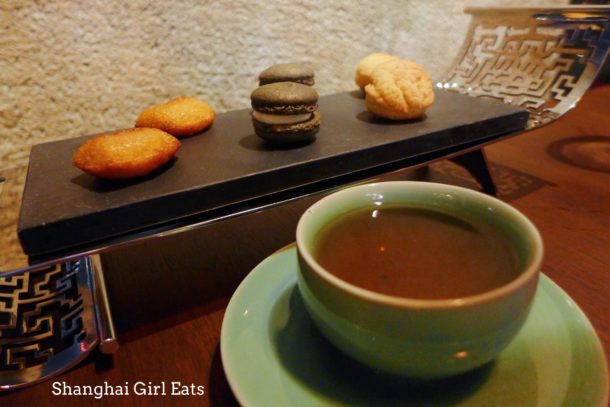











This is not food in the culinary or haute cuisine sense; this is more akin to extravagant ‘playing’ in the kitchen… bordering on a kind of gastronomic Disney Land for adults !
I can describe how they achieved this: With lots of food additives, which are extremely fashionable among Western Avantgarde-chefs.